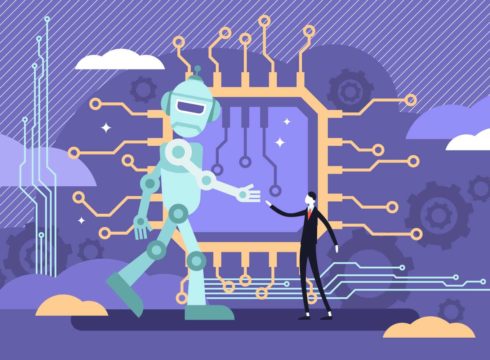SUMMARY
The report talked about changing the policy for patent applications where AI is the primary creator
The language in Indian law is not clear about patent applications where the solution is primarily machine-derived
TCS said 89% of the patents filed globally in 2018 revolve around machine learning algorithms
Inc42 Daily Brief
Stay Ahead With Daily News & Analysis on India’s Tech & Startup Economy
As artificial intelligence systems and machine learning technology is adopted en masse by businesses in the near future, patents and intellectual property rights are only about to get more complex. According to a report by the Confederation of Indian Industry (CII) and Tata Consultancy Services (TCS) titled ‘Understanding the Dynamics of AI in Intellectual Property, India needs to bring in new guidelines and policies for the enforcement of intellectual property rights, patents and intellectual property management in an AI world, where machines are often creating and inventing solutions with minimal human intervention.
In light of the data protection debate, which has been ignited by the Personal Data Protection Bill that is set to be tabled in the Parliament soon, the spotlight has fallen on Big Data and analytics, which is increasingly being used by businesses. Armed with data, machine learning algorithms and AI models often update themselves, thereby bringing in new creations by the day. While this is not possible without human involvement at some point in the process, IP and patent laws in India are woefully outdated to be able to tackle questions of intellectual property in an AI world.
As per Indian law, when it comes to CRI or computer-related inventions, software or computer applications can be the basis for securing patents. However, here the actual human being has to be a true or first inventor, a rule which is complicated by machine innovation. AI or ML systems are programmed to run in a certain way, but much of this process is automated, which means that any new inventions or solutions that come out of such a system cannot be directly attributed to a human. This complicates patent applications for such solutions or inventions under Indian law.
Furthermore, the report also highlighted that globally 89% of the patents filed mention ML as the dominant AI technique in the technology patented. The top five companies in terms of patents in AI and ML include IBM (8,290 patents), Microsoft (5,930), Toshiba (5,223), Samsung (5,102) and NEC (4,406). Interestingly, computer vision is the main application area for 19 of the top 20 companies, except IBM, which focusses on NLP.
Due to the rapid adoption of technologies like AI, ML and blockchain in the country, last month, the Tamil Nadu government reportedly announced to include provisions to promote ethical use of technology in the state’s AI and blockchain policy. This policy would govern the use of AI and blockchain technology across various government services. The CEO of the state’s egovernance agency, Santosh Misra claimed that the AI policy is likely the first policy in the world to address the use of technology around safety and ethical grounds.
Note: We at Inc42 take our ethics very seriously. More information about it can be found here.


